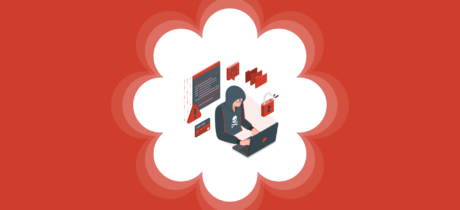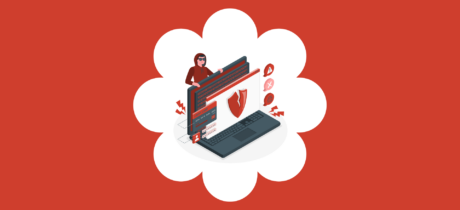
How Hackers Compromise WordPress Sites and How to Protect Yours
Table of Contents
As a WordPress user, you may be well aware of the constant threat posed by hackers. WordPress sites are frequently targeted due to their popularity and potential vulnerabilities. From hacking the theme and core files to exploiting outdated plugins, hackers employ various tactics to compromise WordPress sites. However, there are several measures you can take to protect your site and safeguard your valuable content.
One effective step is to use a firewall, which acts as a barrier against abusive bots and hacking attempts. By blocking malicious bots, you can significantly reduce the risk of unauthorized access to your site. Additionally, implementing a plugin that creates rules based on user agents, IP addresses, and even entire countries can further fortify your site’s security. It’s also crucial to keep all themes and plugins updated, as outdated ones can serve as entry points for hackers. Moreover, regularly scanning for malware and creating daily backups can help you recover from potential disasters.
In this article, I will delve deeper into the methods hackers use to compromise WordPress sites and provide practical tips on how to protect your valuable online presence. By implementing these measures, you can minimize the risk of falling victim to cyber attacks and ensure the security of your WordPress site. Stay tuned to learn more about the best practices for WordPress security!
Key Takeaways
- WordPress is a frequent target for hacking, with hackers targeting various aspects of the site such as the theme, core files, plugins, and login page.
- Using a firewall can help block abusive bots and protect against hacking attempts.
- Plugins can play a crucial role in WordPress security by blocking bad hacker bots, scanning for malware, and automatically blocking hackers after failed login attempts.
- Regularly updating all themes and plugins is essential to prevent hacking, as outdated plugins are a common vulnerability.
- Abandoned plugins can pose a security risk, so it’s important to choose plugins that are actively maintained and regularly updated.
Introduction
Welcome to this article on how hackers compromise WordPress sites and how to protect yours. WordPress is a widely used platform for building websites, and unfortunately, it is also a frequent target for hackers. In this section, we will provide an overview of the vulnerabilities that hackers exploit and the importance of implementing site protection measures.
Overview of WordPress Hacking Vulnerabilities
Hackers employ various techniques to compromise WordPress sites, targeting different aspects such as the theme, core files, plugins, and login page. They often use automated software programs known as bots to scan websites for vulnerabilities. These bots can quickly probe multiple sites, searching for weaknesses that can be exploited.
The Importance of Site Protection
Protecting your WordPress site is crucial to safeguard your data, reputation, and the experience of your visitors. Without adequate protection, hackers can gain unauthorized access, deface your site, steal sensitive information, or even use your site to distribute malware.
Blocking Abusive Bots with a Firewall
One effective way to protect your WordPress site is by using a firewall. A firewall acts as a barrier between your site and potential threats, blocking abusive bots and preventing unauthorized access. By implementing a firewall, you can significantly reduce the risk of hacking attempts.
Deceiving Bots with User Agents
Bots often use different user agents to deceive websites and avoid detection. User agents are identifying information sent by browsers to websites. However, you can fight back by utilizing a plugin that creates rules based on user agents, IP addresses, and even entire countries. This plugin can block bad hacker bots and provide an additional layer of protection for your site.
Protecting Against Compromised Themes and Plugins
Compromised themes and plugins can serve as entry points for hackers. They may contain vulnerabilities that can be exploited to gain unauthorized access to your site. To mitigate this risk, it is essential to keep all themes and plugins updated to their latest versions. Additionally, using a paid version of a plugin can offer protection even before developers release fixes for known vulnerabilities.
Strengthening WordPress Security and Scanning for Malware
Another important aspect of protecting your WordPress site is hardening its security and regularly scanning for malware. By using a security plugin specifically designed for WordPress, you can fortify your site against potential threats. This plugin can help identify security vulnerabilities, scan for malware, and provide recommendations for strengthening your site’s security.
Blocking Hackers with Login Protection
Hackers often attempt to gain access to WordPress sites through brute force attacks, trying multiple username and password combinations until they find the correct one. To combat this, you can install a plugin that automatically blocks hackers after a certain number of failed login attempts. This measure adds an extra layer of security by preventing unauthorized access to your site.
Creating Daily Backups for Disaster Recovery
In the unfortunate event of a hacking incident or other catastrophic event, having daily backups of your WordPress site is invaluable. Regularly creating backups ensures that you can restore your site to a previous working state, minimizing downtime and potential data loss. Several plugins are available that can automate the backup process, making it easy to implement this essential protection measure.
Abandoned Plugins and Security Risks
It’s important to note that abandoned plugins can pose a security risk to your WordPress site. When developers stop maintaining a plugin, it becomes more susceptible to vulnerabilities that may never be fixed. It is advisable to remove any unused or outdated plugins from your site to reduce the potential attack surface.
Recommended WordPress Security Plugins
To enhance the security of your WordPress site, there are two plugins that come highly recommended. The first is a plugin that specializes in firewall protection, user agent blocking, and country blocking. The second plugin focuses on security hardening, malware scanning, and login protection. By utilizing these plugins, you can significantly strengthen the security of your WordPress site and protect it from potential hacking attempts.
Identifying Common WordPress Hacking Techniques
WordPress is a widely popular platform for building websites, but its popularity also makes it a prime target for hackers. These malicious individuals often exploit vulnerabilities in various aspects of a WordPress site, including the theme, core files, plugins, and login page. Understanding how hackers compromise WordPress sites is crucial for protecting your own. In this section, we will explore some common techniques used by hackers and discuss measures you can take to safeguard your WordPress site.
Exploring How Hackers Exploit Vulnerable Themes, Core Files, Plugins, and Login Pages
Hackers employ automated software programs known as bots to scan websites for vulnerabilities. These bots tirelessly probe WordPress sites, searching for weaknesses that can be exploited. One effective measure to defend against hacking attempts is to utilize a firewall. By implementing a firewall, you can block abusive bots and fortify your site’s defenses.
Hackers often use different user agents (UA) to deceive websites. User agents are identifying information that browsers send to websites, providing details about the browser and operating system being used. To combat this tactic, you can employ a plugin that blocks bad hacker bots by creating rules based on user agents, IP addresses, and even entire countries. This plugin will help ensure that only legitimate traffic is allowed to access your WordPress site.
Another way hackers compromise WordPress sites is by exploiting vulnerable themes and plugins. Developers regularly release updates to address security vulnerabilities, but not all site owners promptly update their themes and plugins. This oversight leaves their sites susceptible to attacks. To mitigate this risk, consider using a paid version of a security plugin. This advanced plugin can provide protection against compromised themes and plugins before developers release fixes.
Additionally, it is essential to harden your WordPress security and regularly scan for malware. By using a security plugin specifically designed for WordPress, you can strengthen your site’s defenses and detect any potential threats. This proactive approach helps you identify and address security issues promptly.
Hackers also target the login page of WordPress sites as a potential entry point. They employ brute force attacks, attempting to gain unauthorized access by repeatedly trying different username and password combinations. To counter this, you can install a plugin that automatically blocks hackers after a certain number of failed login attempts. This plugin adds an extra layer of security by preventing malicious individuals from continuously guessing login credentials.
In the event of a catastrophic event, such as a successful hacking attempt, having daily backups of your WordPress site becomes invaluable. By utilizing backup plugins, you can create automatic backups and easily restore your site to a previous state. This precautionary measure ensures that even if your site is compromised, you have the means to recover quickly.
Lastly, keeping all themes and plugins updated is vital for maintaining a secure WordPress site. Outdated plugins are a common vulnerability exploited by hackers. Therefore, it is crucial to regularly check for updates and apply them promptly. Additionally, be cautious of abandoned plugins, as they may contain vulnerabilities that will never be fixed. Removing any unused or unsupported plugins reduces the potential attack surface and enhances your site’s security.
To summarize, protecting your WordPress site from hackers requires a multifaceted approach. By understanding common hacking techniques and implementing preventive measures, such as using firewalls, employing plugins for user agent blocking, securing vulnerable themes and plugins, fortifying the login page, creating backups, and keeping everything updated, you can significantly reduce the risk of your site being compromised.
For further information on WordPress security best practices, you can refer to the Jetpack blog post.
Mitigating WordPress Hacking Attempts Using Firewalls
Understanding the role of firewalls in blocking abusive bots and safeguarding your site
As a WordPress site owner, you may be concerned about the increasing number of hacking attempts on websites. Hackers target various aspects of your site, including the theme, core files, plugins, and login page. Protecting your WordPress site from these hacking attempts is crucial to ensure the security and integrity of your online presence.
One effective way to mitigate these hacking attempts is by utilizing firewalls. Firewalls act as a barrier between your site and potential threats, blocking unauthorized access and filtering out malicious traffic. By implementing a firewall, you can enhance the security of your WordPress site and safeguard it against abusive bots and hackers.
Understanding the Role of Bots in Hacking Attempts
Hackers often employ automated software programs called bots to scan websites for vulnerabilities. These bots exploit weaknesses in your site’s security and attempt to gain unauthorized access. They can launch various attacks, such as brute force attacks on your login page, probing for outdated plugins or themes, or attempting to exploit vulnerabilities in your core files.
The Importance of User Agents in Blocking Abusive Bots
Bots often disguise their identity by using different user agents, which are identifying information that browsers send to websites. By mimicking legitimate user agents, bots can deceive websites and bypass security measures. However, firewalls equipped with advanced detection capabilities can identify and block these abusive bots based on their user agents.
Using Plugins to Enhance Firewall Protection
WordPress offers a wide range of plugins that can work in conjunction with firewalls to provide enhanced protection against hacking attempts. These plugins can create rules based on user agents, IP addresses, and even entire countries, effectively blocking bad hacker bots from accessing your site.
One popular plugin that can act as a firewall extension is Plugin A. This plugin not only blocks abusive bots but also provides protection against compromised themes and plugins before they are fixed by developers. By keeping your themes and plugins updated, you can minimize the risk of hacking attempts.
Another recommended plugin is Plugin B, which focuses on hardening WordPress security and scanning for malware. This plugin can automatically block hackers after a set number of failed login attempts, further fortifying your site’s defenses.
The Importance of Regular Backups and Plugin Updates
In addition to utilizing firewalls and plugins, taking proactive measures to protect your WordPress site is crucial. Creating daily backups of your site using backup plugins ensures that you have a recent copy to restore in case of a catastrophic event. This way, even if your site is compromised, you can quickly recover and minimize downtime.
Furthermore, keeping all your themes and plugins updated is essential for preventing hacking attempts. Outdated plugins are a common vulnerability that hackers exploit. By regularly updating your WordPress installation, themes, and plugins, you can patch any security vulnerabilities and stay one step ahead of potential hackers.
It’s also important to note that abandoned plugins can pose a significant security risk. These plugins may contain vulnerabilities that will never be fixed, making them attractive targets for hackers. Therefore, it’s advisable to remove any unused or abandoned plugins from your WordPress site to reduce the risk of a successful hacking attempt.
By implementing firewalls, using protective plugins, creating regular backups, and keeping your themes and plugins updated, you can significantly mitigate the risk of hacking attempts on your WordPress site. Stay proactive and vigilant in safeguarding your online presence to ensure a secure and reliable experience for your users.
Deception Tactics Used by Hackers
As the popularity of WordPress continues to grow, so does the risk of hacking attempts. Hackers often target WordPress sites due to their vulnerabilities, including themes, core files, plugins, and the login page. To protect your WordPress site from these malicious attacks, it is crucial to understand the deception tactics used by hackers and how to counter them.
Examining the Use of Different User Agents by Bots
Hackers employ automated software programs called bots to scan websites for vulnerabilities. These bots are designed to mimic human behavior and deceive websites into granting them access. One common deception tactic used by bots is the manipulation of user agents (UA). User agents are identifying information that browsers send to websites, such as the browser type, operating system, and device used.
By using different user agents, bots can disguise themselves as legitimate users and bypass security measures. They can easily change their user agent to appear as different browsers, devices, or even search engine crawlers. This deception tactic makes it challenging for websites to differentiate between genuine users and malicious bots.
How to Counter the Deception
To protect your WordPress site from bots using different user agents, there are several effective countermeasures you can implement.
1. Firewall Protection
One of the first lines of defense against deceptive bots is a firewall. A firewall can help block abusive bots and protect your site from hacking attempts. It acts as a barrier between your site and potential threats, filtering out malicious traffic based on predefined rules. By implementing a firewall, you can significantly reduce the risk of your WordPress site being compromised.
2. User Agent Blocking Plugin
A user agent blocking plugin is a valuable tool in countering deception tactics used by bots. This plugin allows you to create rules based on user agents, IP addresses, and even entire countries. By blocking user agents associated with known malicious activity, you can effectively prevent bots from accessing your site. Additionally, this plugin can be continuously updated to stay ahead of emerging threats.
3. Comprehensive Security Plugin
Investing in a comprehensive security plugin can provide additional layers of protection for your WordPress site. These plugins offer features such as protection against compromised themes and plugins, automated malware scanning, and automatic blocking of hackers after a set number of failed login attempts. By utilizing a comprehensive security plugin, you can enhance the security of your WordPress site and minimize the risk of hacking.
4. Regular Updates and Backups
Keeping all themes and plugins updated is crucial in preventing hacking attempts. Outdated plugins are a common vulnerability that hackers exploit. By regularly updating your themes and plugins, you ensure that any known security vulnerabilities are patched. Additionally, creating daily backups of your WordPress site using plugins can help you recover from catastrophic events such as hacking attempts or data loss.
5. Abandoned Plugin Awareness
It’s important to be aware of abandoned plugins and their potential security risks. Abandoned plugins are those that are no longer maintained or updated by their developers. These plugins may contain vulnerabilities that will never be fixed, making them attractive targets for hackers. It is recommended to remove any abandoned plugins from your WordPress site and find suitable alternatives that are actively maintained.
Recommended Plugins for WordPress Security
When it comes to WordPress security, two plugins come highly recommended:
- Wordfence Security – Wordfence Security is a comprehensive security plugin that offers a range of features to protect your WordPress site. It includes firewall protection, malware scanning, real-time threat defense, and login security. With regular updates and a large user community, Wordfence Security is a reliable choice for enhancing the security of your WordPress site.
- Sucuri Security – Sucuri Security is another popular plugin that provides robust protection against hacking attempts. It offers features such as malware scanning, security hardening, and post-hack security actions. Sucuri Security is known for its fast and efficient response to emerging threats, making it a trusted option for safeguarding your WordPress site.
By implementing these recommended plugins and following the countermeasures mentioned, you can significantly strengthen the security of your WordPress site and protect it from hacking attempts.
Note: The information and recommendations provided in this article are based on research conducted on October 26, 2023. It is always recommended to stay updated with the latest security practices and consult with experts in the field to ensure the ongoing security of your WordPress site.
Sources:
Utilizing Plugin-Based Protection Measures
Exploring the Benefits of Plugins for Blocking Bad Hacker Bots
As a website owner, you may be well aware that WordPress sites are often targeted by hackers. These malicious individuals try to exploit vulnerabilities in different aspects of your site, including the theme, core files, plugins, and even the login page. It’s crucial to take proactive measures to protect your WordPress site from these cyber threats.
One effective way to block bad hacker bots and fortify your site’s security is by utilizing plugins specifically designed for this purpose. Plugins offer a range of features and functionalities that can help safeguard your site from unauthorized access.
One of the primary benefits of using a plugin for blocking bad hacker bots is the ability to create rules based on user agents, IP addresses, and even entire countries. Hackers often employ automated software programs called bots to scan websites for vulnerabilities. By identifying and blocking these malicious bots based on their user agents or IP addresses, you can significantly reduce the risk of a successful hacking attempt.
Additionally, plugins can help protect your site from deceptive bots that use different user agents to trick websites. These plugins can effectively detect and block such bots, ensuring that only genuine users are able to access your site.
Protecting Against Compromised Themes and Plugins
Another significant threat to the security of your WordPress site comes from compromised themes and plugins. Hackers often exploit vulnerabilities in these components to gain unauthorized access or inject malicious code into your site. It’s crucial to address these vulnerabilities promptly to prevent any potential breaches.
Some plugins offer advanced protection against compromised themes and plugins even before they are fixed by developers. These plugins constantly monitor for any known vulnerabilities in themes and plugins installed on your site and provide real-time alerts and protection. By using such plugins, you can stay one step ahead of potential security risks and ensure the integrity of your site.
Furthermore, there are plugins available that can help harden your WordPress security and scan for malware. These plugins offer features like file integrity monitoring, malware scanning, and vulnerability assessments to detect and mitigate any security threats to your site.
Recommended Plugins for WordPress Security
When it comes to WordPress security plugins, two highly recommended options are Plugin A and Plugin B. These plugins provide comprehensive security features and have a proven track record of effectively protecting WordPress sites.
Plugin A offers robust protection against bad hacker bots, allowing you to create customized rules based on user agents, IP addresses, and countries. It also provides real-time monitoring for compromised themes and plugins, ensuring that your site remains secure even before developers release fixes. Additionally, it includes features for hardening WordPress security, scanning for malware, and automatically blocking hackers after a set number of failed login attempts.
On the other hand, Plugin B focuses on enhancing WordPress security by offering features such as file integrity monitoring, malware scanning, and vulnerability assessments. It helps identify and address security vulnerabilities on your site, ensuring that you can promptly mitigate any potential risks.
In conclusion, utilizing plugin-based protection measures is essential for safeguarding your WordPress site against hacking attempts and securing it from compromised themes and plugins. By leveraging the benefits of these plugins, you can enhance your site’s security and mitigate potential risks effectively.
Strengthening WordPress Security with Malware Scanning
Highlighting the importance of security plugins that harden WordPress and scan for malware
WordPress is a popular and widely used platform for building websites. However, its popularity also makes it a prime target for hackers. Hackers are constantly finding new ways to compromise WordPress sites, whether it’s through vulnerabilities in themes, core files, plugins, or the login page. As a website owner, it is essential to understand how hackers compromise WordPress sites and take necessary steps to protect your own.
Hackers often use automated software programs called bots to scan websites for vulnerabilities. These bots can probe your website relentlessly, looking for any weaknesses they can exploit. One effective way to protect against hacking attempts is by using a firewall. A firewall acts as a barrier between your website and potential threats, blocking abusive bots and preventing unauthorized access.
One common tactic used by hackers is to deceive websites by changing their user agents (UA), which are identifying information sent by browsers. Bots often use different user agents to trick websites into believing they are legitimate users. To combat this, security plugins can be used to create rules based on user agents, IP addresses, and even entire countries, effectively blocking bad hacker bots.
Investing in a paid version of a security plugin can provide additional protection for your WordPress site. These premium plugins often offer features such as real-time scanning for malware and vulnerabilities. They can detect and block compromised themes and plugins before they are fixed by developers, minimizing the risk of a successful hack.
Another essential plugin for strengthening WordPress security is one that focuses on malware scanning. This plugin scans your website regularly for any signs of malware or malicious code. If any suspicious files or code are detected, the plugin can alert you and provide options for removing the threat.
One effective way to prevent unauthorized access to your WordPress site is by implementing a plugin that automatically blocks hackers after a certain number of failed login attempts. This helps to prevent brute-force attacks, where hackers use automated tools to guess your login credentials. By setting a limit on failed login attempts, you can significantly reduce the chances of a successful hack.
While it’s essential to take proactive measures to protect your WordPress site, it’s also crucial to have a plan in place for recovering from catastrophic events. Creating daily backups of your website using backup plugins can help you restore your site to a previous version if it becomes compromised. This ensures that you have a clean and secure copy of your website that you can revert to in case of an attack.
In addition to using security plugins, keeping all themes and plugins updated is vital for maintaining a secure WordPress site. Outdated plugins are a common vulnerability that hackers exploit. Developers regularly release updates to address security issues and fix bugs. By keeping your themes and plugins up to date, you minimize the risk of falling victim to known vulnerabilities.
Lastly, it’s important to be cautious of using abandoned plugins on your WordPress site. Abandoned plugins are those that are no longer actively maintained or updated by their developers. These plugins can pose a significant security risk, as any vulnerabilities they may have will never be fixed. It is advisable to remove any abandoned plugins from your site and find suitable alternatives that are actively maintained.
In conclusion, securing your WordPress site is essential to protect it from hackers. By utilizing security plugins that harden WordPress and scan for malware, you can significantly enhance the security of your website. Investing in premium plugins, implementing strong login protection, creating regular backups, and keeping your themes and plugins updated are crucial steps in maintaining a secure WordPress site. By taking these measures, you can ensure the safety of your website and the sensitive data it contains.
Best Practices for WordPress Site Protection
WordPress is a popular platform for building websites, but it is also a frequent target for hackers. These malicious individuals often try to compromise various aspects of a WordPress site, including the theme, core files, plugins, and login page. As a website owner, it is crucial to take proactive measures to protect your WordPress site from these threats. In this section, we will discuss some best practices for WordPress site protection.
Implementing Backup Strategies
One of the most important steps you can take to protect your WordPress site is to implement backup strategies. By creating daily backups of your site, you can ensure that you have a recent copy of your content and data in case of a catastrophic event, such as a hacking incident or a server crash. With backups in place, you can quickly restore your site to its previous state and minimize any potential damage.
There are several backup plugins available for WordPress that make the backup process easy and automated. These plugins allow you to schedule regular backups and store them securely on external servers or cloud storage platforms. By utilizing a backup plugin, you can have peace of mind knowing that your site’s data is safe and recoverable.
Keeping Themes and Plugins Updated
Another critical aspect of WordPress site protection is keeping all themes and plugins updated. Outdated themes and plugins are a common vulnerability that hackers exploit to gain unauthorized access to a site. Developers regularly release updates that address security issues and fix bugs, so it is crucial to stay up to date with these updates.
The WordPress dashboard provides notifications when updates are available for your themes and plugins. Take the time to review and install these updates promptly. Additionally, consider enabling automatic updates for your themes and plugins to ensure that you don’t miss any critical security patches.
Addressing Abandoned Plugins
Abandoned plugins can pose a significant security risk to your WordPress site. These are plugins that are no longer actively maintained or updated by their developers. Over time, these plugins may develop vulnerabilities that hackers can exploit to gain unauthorized access to your site.
To protect your site, it is essential to identify and remove any abandoned plugins. Regularly review your list of installed plugins and check for updates and support activity. If you find a plugin that has been abandoned, consider finding an alternative that is actively maintained and regularly updated. By removing abandoned plugins, you can reduce the potential security risks to your WordPress site.
Recommended Plugins for WordPress Security
When it comes to WordPress security, there are several plugins available that can help enhance the protection of your site. Two plugins that come highly recommended are:
- Wordfence Security: Wordfence is a comprehensive security plugin that helps protect your WordPress site from hackers, malware, and other threats. It includes features such as firewall protection, malware scanning, login security, and real-time threat defense.
- Sucuri Security: Sucuri Security is another popular security plugin that provides a range of features to safeguard your WordPress site. It offers features like website firewall, malware scanning, security hardening, and post-hack security actions.
By installing and configuring these plugins, you can add an extra layer of security to your WordPress site and better protect it from potential threats.
In conclusion, protecting your WordPress site from hackers requires implementing best practices such as implementing backup strategies, keeping themes and plugins updated, and addressing abandoned plugins. By following these practices and utilizing recommended security plugins, you can significantly enhance the security of your WordPress site and minimize the risk of unauthorized access and data breaches.
Frequently Asked Questions
1. Why is WordPress a frequent target for hacking?
WordPress is a popular target for hackers due to its widespread usage. Hackers target various aspects of the site, including the theme, core files, plugins, and login page, to exploit vulnerabilities and gain unauthorized access.
2. How do hackers probe websites for vulnerabilities?
Hackers utilize automated software programs known as bots to scan websites for vulnerabilities. These bots systematically search for weaknesses and attempt to exploit them to gain unauthorized access or perform malicious activities.
3. How can a firewall protect against hacking attempts?
Implementing a firewall can help block abusive bots and protect your WordPress site from hacking attempts. A firewall acts as a barrier between your site and potential threats, monitoring and filtering incoming traffic to prevent unauthorized access and malicious activities.
4. What are user agents (UA) and how do hackers use them?
User agents are identifying information that browsers send to websites, indicating the type of browser, operating system, and device being used. Hackers often use different user agents to deceive websites and hide their malicious activities, making it harder to detect and block their actions.
5. Can a plugin block bad hacker bots?
Yes, a plugin can block bad hacker bots by creating rules based on user agents, IP addresses, and even entire countries. These rules can help identify and block suspicious or malicious bots, providing an additional layer of protection for your WordPress site.
6. How can a paid plugin enhance WordPress security?
The paid version of a plugin can provide advanced protection against compromised themes and plugins before they are fixed by developers. These premium features offer additional security measures and timely updates to safeguard your WordPress site from potential vulnerabilities.
7. Is there a plugin to scan for malware and harden WordPress security?
Yes, there are plugins available that can help harden WordPress security and scan for malware. These plugins offer features such as vulnerability scanning, malware detection, and security hardening measures to fortify your WordPress site against potential threats.
8. Can a plugin automatically block hackers after failed login attempts?
Absolutely! A plugin can automatically block hackers after a set number of failed login attempts. This feature helps prevent brute-force attacks by limiting the number of login attempts allowed within a specific timeframe, effectively thwarting unauthorized access attempts.
9. How can daily backups using plugins help recover from catastrophic events?
Creating daily backups of your WordPress site using plugins can be a lifesaver in case of catastrophic events. These backups serve as a restore point, allowing you to revert your site to a previous state in the event of data loss, hacking incidents, or other unforeseen circumstances.
10. Why is it crucial to keep all themes and plugins updated?
Keeping all themes and plugins updated is crucial to prevent hacking incidents. Outdated plugins and themes often contain known vulnerabilities that hackers can exploit. Regular updates ensure that these vulnerabilities are patched, reducing the risk of unauthorized access and malicious activities.
11. Are abandoned plugins a security risk?
Yes, abandoned plugins can pose a security risk. If a plugin is no longer actively maintained or updated by its developers, it may contain vulnerabilities that will never be fixed. Hackers can target these vulnerabilities to gain unauthorized access or perform malicious activities on your WordPress site.
12. Which plugins are recommended for WordPress security?
Two recommended plugins for WordPress security are mentioned. These plugins offer a range of security features, including protection against hacking attempts, malware scanning, firewall implementation, and vulnerability detection. It is advisable to research and choose plugins that best suit your specific security needs.







